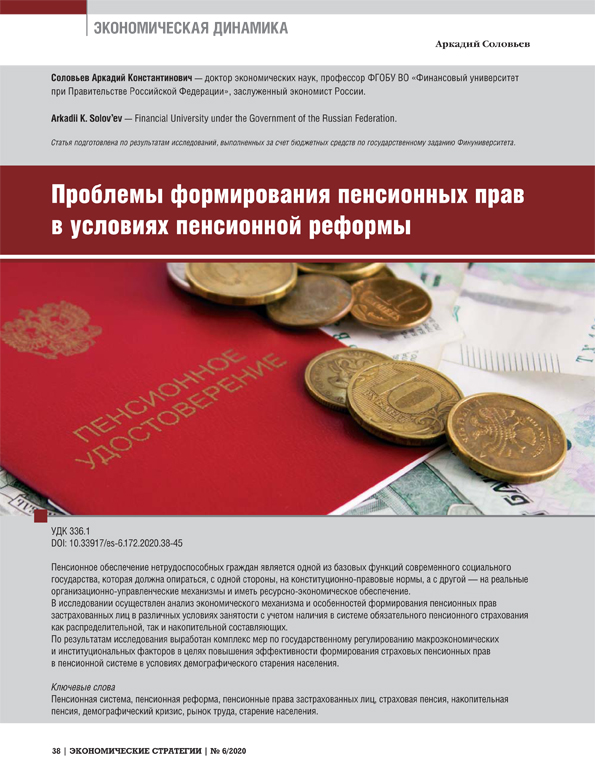Problems of Establishing Pension Rights in the Context of Pension Reform
DOI: 10.33917/es-6.172.2020.38-45
Pension provision of disabled citizens is one of the basic functions of a modern welfare state, which should be based, on the one hand, on constitutional and legal norms, and on the other — on real organizational and administrative mechanisms and should have resources and economic support.
The study analyzes economic mechanism and peculiarities of forming the pension rights of insured persons in various employment conditions, taking into account the presence in the compulsory pension insurance system of both pay-as-you-go and funded components.
Following the study, a set of measures was developed for state regulation of macroeconomic and institutional factors in order to increase the efficiency of establishing the insurance pension rights in the pension system in the context of demographic aging of the population.






